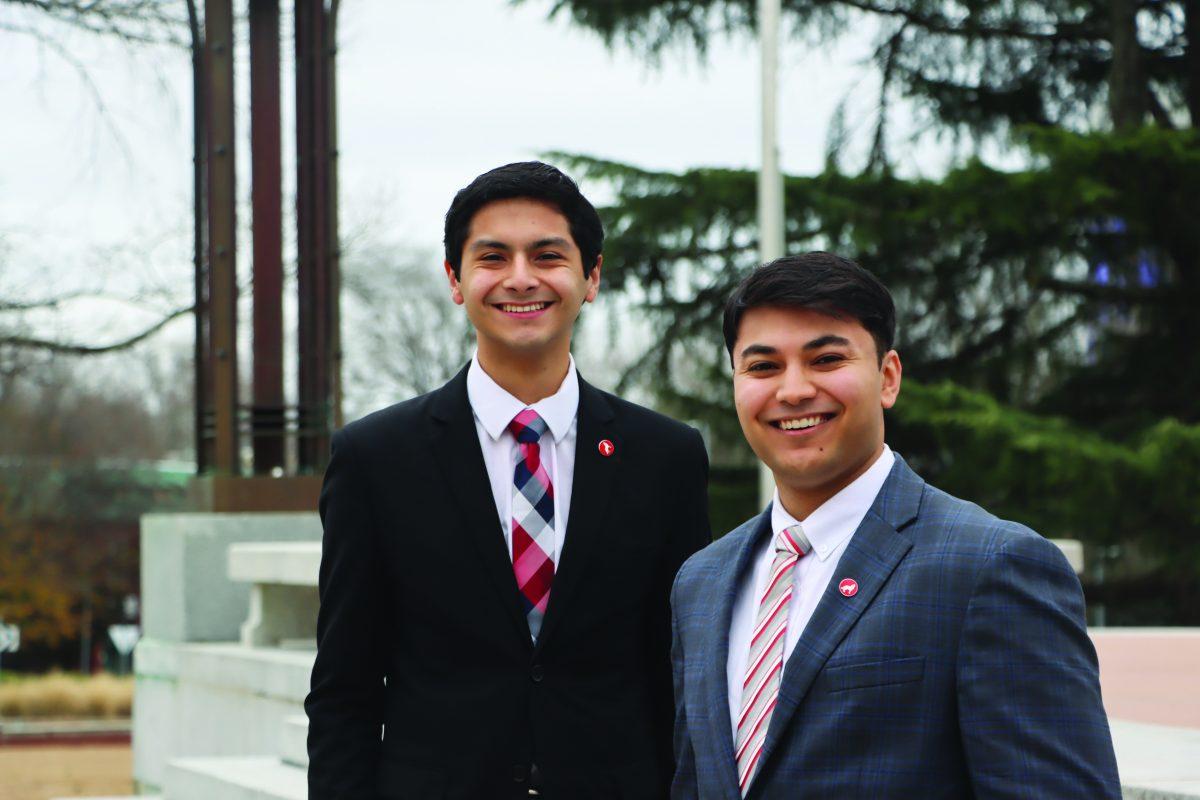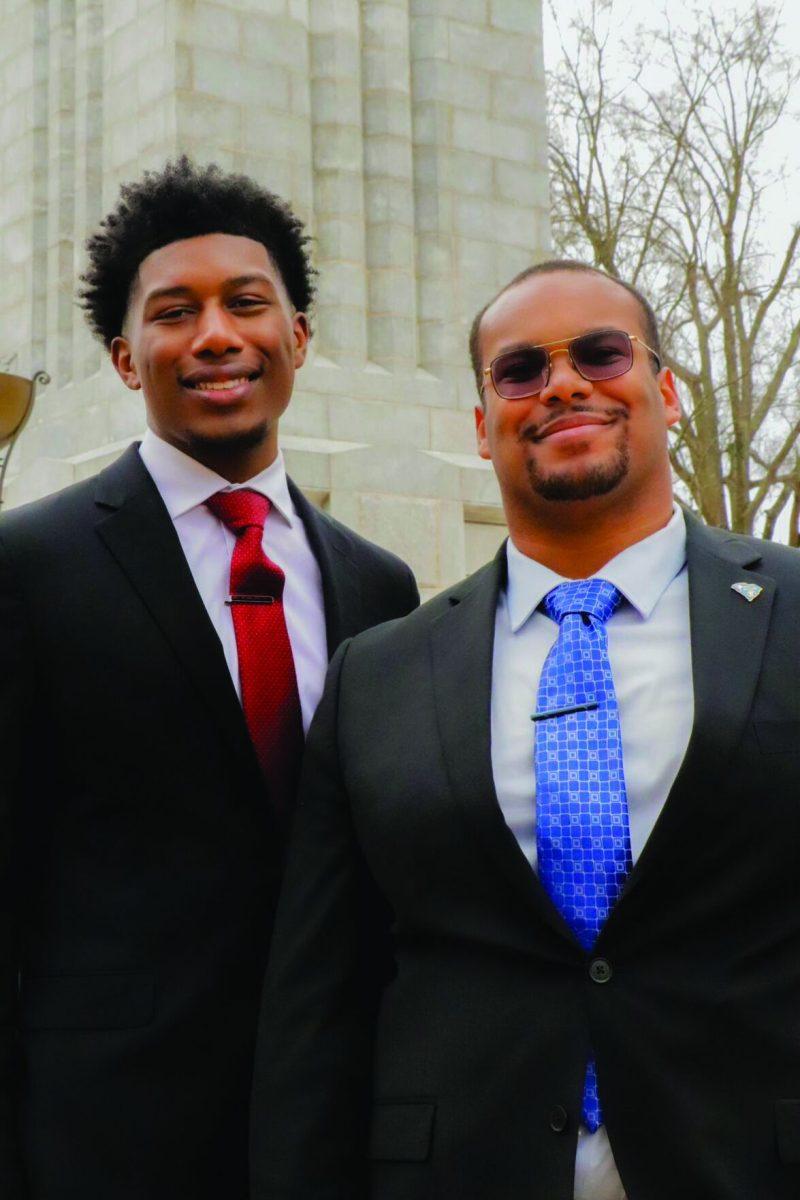Editor’s Note: Information in this article, originally published Feb. 4, 2025, has been corrected. Another university was confused for Winston-Salem State for opting to offer optional DEI-related trainings.
A new report by the NC State Student Senate’s Standing Committee on Diversity, Inclusion and Outreach analyzes the effects of recent policy changes that have scaled back diversity, equity and inclusion initiatives across the UNC System.
The 17-page report, titled “Diversity, Equity and Inclusion Within the UNC System Research Report,” examines how the UNC Board of Governors’ May 2024 decision to repeal and replace the system’s DEI regulation has impacted NC State and other UNC institutions.
Key changes at NC State include the elimination of eight DEI-related positions and the realignment of 29 others, renaming of the Office of Institutional Equity and Diversity to the Office of Equal Opportunity, moving Campus Community Centers from OIED to the Division of Academic and Student Affairs, the suspension of DEI-related trainings not required by law and the redirection of $4.9 million in DEI-related funding to other initiatives.
Caroline Miranda, a third-year studying science, technology and society and Student Senate president, said these changes were primarily made to comply with new regulations rather than to improve student support.
The report argues these changes could negatively impact marginalized students who previously relied on targeted DEI support services. It also expresses concern about a potential “chilling effect” on campus discussions related to diversity and inclusion.
“For many UNC System students, especially those from marginalized communities and identities, departments supporting DEI initiatives within their respective institutions were essential to fostering a sense of belonging, providing resources and creating an inclusive environment that supports students’ academic and personal success,” the report states.
Miranda said they found the quick implementation of the policy changes concerning.
“It really angered me, because it was so quick and easy, and it really did not value students that were standing outside [the Board of Governors meeting] hearing or speaking for their beliefs and what they think is crucial to our student bodies across the UNC System,” Miranda said.
The report examines how other UNC institutions have responded to the policy changes. For example, it notes Winston-Salem State University is still offering optional DEI-related trainings for employees.
“This university is a prime example of allowable display of DEI content and inviting individuals to seek knowledge, while still adhering to the policy,” the report states.
The Student Senate committee makes several recommendations in the report, including providing clearer guidelines on institutional neutrality, preserving inclusive curriculum development, maintaining campus dialogue and debate on DEI issues, increasing support for DASA and student outreach and enhancing student support and success programs.
Section 3.2 details several programs impacted by fund redirection resulting from recent policy changes. These include the College of Natural Resources’ Black Male Research Engagement and Mentoring Program and the peer-mentor support for USDA NIDA National Needs Fellows. Additionally, the College of Agricultural and Life Sciences’ Office of Diversity and Inclusion was eliminated, and $128,338 was reallocated from the Division of Academic and Student Affairs’ Assistant Director for Diversity and Outreach position in the Counseling Center.
The reallocations add up to $4,909,053 according to NC State’s compliance report.
Naila Din, a third-year studying microbiology and chair of the Standing Committee on Diversity, Inclusion and Outreach, said she was frustrated with how redirected DEI funding was characterized as “savings” in the compliance report.
“It’s just so inhumane and it’s insensitive that so many students like myself were able to benefit from these services, but now it’s just gone to savings,” Din said.
Bella Echiburu, a second-year studying psychology and a member of the committee, said the moving of DEI program funds into savings undermines the value of support for marginalized students.
“They’re not even reallocating it into anything,” Echiburu said. “It’s saying like there’s no value, that they’d rather just send it away and keep that money for nothing than have it.”
The report said while aiming for institutional neutrality, the University can still provide targeted support for marginalized groups.
“NC State is capable of reinforcing an environment that uplifts every students’ success, while simultaneously acknowledging any gaps within the student population by ensuring an equitable environment for all,” the report states.
Shatha Boaj, a third-year studying political science and a member of the committee, expressed concern about the renaming of diversity-focused offices to emphasize “equal opportunity,” arguing that it fails to acknowledge existing societal inequalities and may worsen circumstances for marginalized students.
“Changing the department to the notion of equal opportunity undermines students on campus, because we all know in today’s society, no one is truly equal, especially with discrimination and racial biases,” Boaj said. “And I think that just kind of worsens some people, especially students’ circumstances, and just undermines [their experiences].”
University spokesperson Mick Kulikowski wrote in an email statement to Technician that the University is committed to continuing its student support initiatives through the OEO.
“For many years, the University has invested in student programs that help cultivate a sense of belonging and provide wraparound support services across campus,” Kulikowski wrote. “In addition, the University provides robust discrimination and harassment prevention and response programs under the OEO. The University teams and offices dedicated to equal opportunity, student success and well-being continue doing their important work in alignment with UNC System policy.
Echiburu said the senators see the report as an important step in advocating for students impacted by the policy changes.
“We’re already doing a good thing by putting in our time and resources to researching this and making a formal report,” Echiburu said. “Obviously we’re trying to pass this bill to be endorsed by the Senate and then also holding our own events.”
The Student Senate is expected to vote this week on formally endorsing the report. Committee members said they plan to share it widely regardless of the vote outcome.
Miranda said University administrators have already been briefed on the report’s contents. They said they hope it will spur further dialogue about maintaining support for marginalized students within the new policy framework.
Kulikowski wrote that the University administration hopes to continue dialogue on this issue.
The report comes as concerns grow nationally about restrictions on DEI initiatives in not just higher education but governmental entities and corporations as a whole.
“This is reflected not just in North Carolina, not just in the UNC System, but in the nation right now,” Echiburu said. “And I think it’s going in a direction we’d not like to see. So I think having at least some initiatives locally, I hope that it spreads nationally. But as it’s going right now, it is a little bit scary.”
Din said committee members worry the NC General Assembly could impose even stricter limits when it reconvenes.
“That’s one of our biggest concerns, when the General Assembly comes back into session, will they take a more aggressive force at this to restrict it more, or will we see minor changes?” Din said.
Boaj said the General Assembly’s continued involvement in DEI policy has caused fear and chaos among universities, leading them to hastily implement institutional neutrality policies to preempt potentially harsher measures.
“When we first heard about the DEI repeal, it instilled a lot of fear because of what the General Assembly might do,” Boaj said. “A lot of universities were scrambling around and trying to figure out what to do and implementing institutional neutrality on their own so it wouldn’t be more aggressive. … It created chaos that universities shouldn’t have to be concerned about.”
Miranda said Student Government will continue advocating for marginalized students and working to foster an inclusive campus environment within the bounds of the new policies.
“Student Government is fundamentally here to make sure that the student voice is still heard and implement changes,” Miranda said. “Then what we can do as well as holding the University accountable to making sure that they’re still supporting students.”
Kulikowski emphasized in his statement that any students who feel that they have been discriminated against at NC State should file a report with the OEO.
“The University wants to stress that individuals have rights under various civil rights laws,” Kulikowski wrote. “If you want to learn more about these, please reach out to OEO. If you believe that you or someone else has been discriminated against or harassed because of race, color, national origin, disability, age, sex or religion in any NC State program or activity, or if you want to discuss any of these policies you may file a report with the Office for Equal Opportunity at equalopportunity.ncsu.edu/report-a-concern/.













